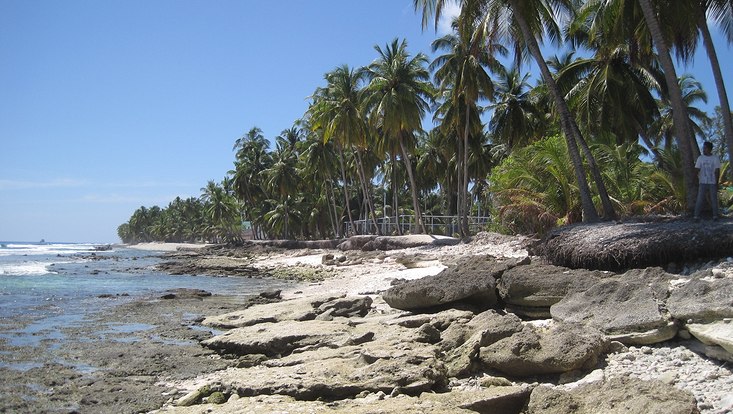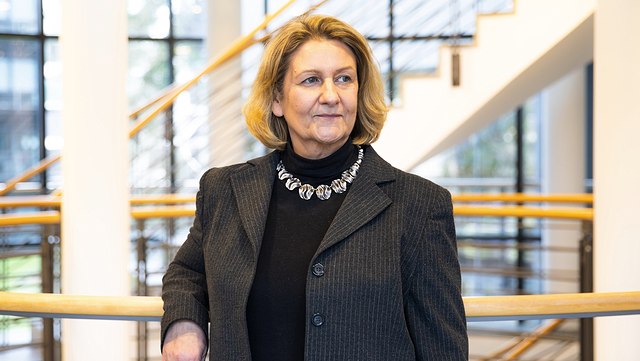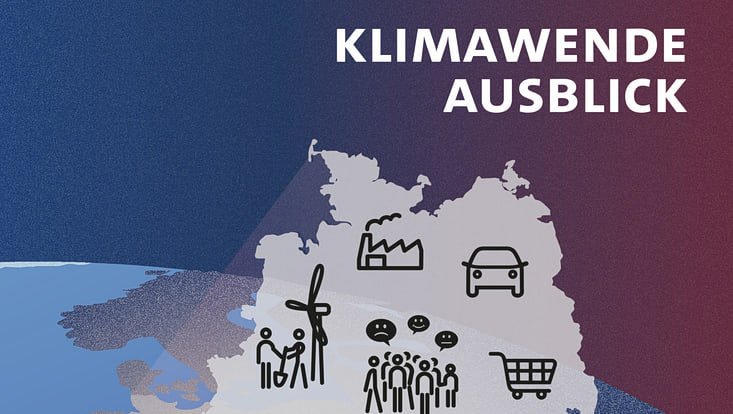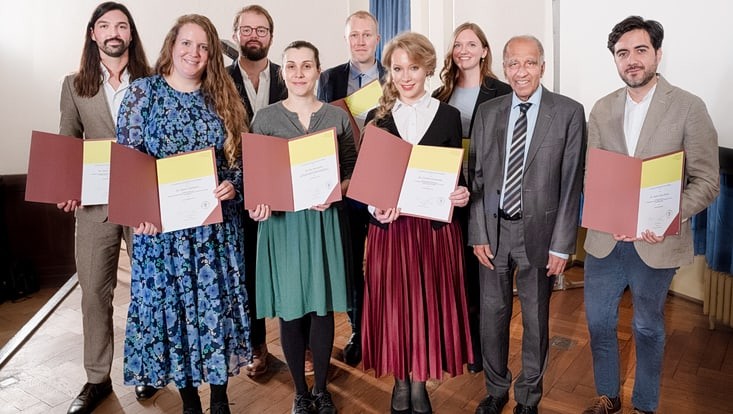and Society (CLICCS)
UNESCO Chair at Universität Hamburg“Grasping climate change takes a personal experience”
6 March 2024, by Stephanie Janssen

Photo: Beate Ratter
For the past several years, geographer Prof. Beate Ratter has been investigating adaptation measures on small islands that are especially endangered by climate change. As of 2024, she will head the new UNESCO Chair of “Societal Climate Research and Resilience” at Universität Hamburg.
Ms. Ratter, the impacts of climate change can be seen around the globe. Your goal is to achieve the transition from knowledge to action. How do you plan to pursue that approach over the next four years?
The UNESCO Chair offers an extensive network that I can draw upon and connect with. From my own research I know that, though most people are aware of climate change, it’s still quite abstract to them. In order for them to actively do something about climate change, it often takes some experience that personally motivates them. We’ve developed corresponding concepts, which I plan to adapt to the needs of small islands and share with experts around the world.

A natural disaster in their home region would surely leave its mark, though of course that’s something you wouldn’t wish on anyone. But how can climate-change-related experiences be simulated?
We’ve successfully developed a range of measures and workshops for Germany’s islands and coastal regions, which we always adapt to the respective local conditions. For instance, to start a dialogue, we conduct tours with island residents, which highlight individual sites where the effects of climate change can already be seen and felt.
And what does that accomplish?
For example: a survey conducted in September 2022 found that the majority of the populace of Norderney didn’t consider climate change to pose a problem for them. Those who take part in our tours first unknowingly walk over a subterranean water lens that ensures their supply of drinking water. If the dunes protecting it continue to erode and storm surges become more frequent, saltwater could penetrate the lens – which would contaminate the reservoir for decades. After discussing this issue with us, many participants adopt a different view on the area; when they walk through it now, they think about their water supply, which climate change could jeopardize.
You plan to internationalize these concepts and adapt them for small islands around the world, like Trinidad, the Seychelles or the Marshall Islands. What gets people to subsequently take action?
Getting in touch with local people from all walks of life is the foundation of my work. From our research at the Cluster of Excellence CLICCS we know that sensible climate-change adaptation measures don’t work if their concepts don’t adequately consider the local populace. Science focuses on the concrete effects of implementing various measures. But these solutions have to be locally approved and implemented by local communities. It’s been proven that when local citizens feel empowered and that they can make a difference, they’re more motivated to pitch in.
But isn’t that just a drop in the bucket?
It’s important that we don’t solely leave it up to politicians to solve the problem of climate change, and that we actively do our part, too. Shared experiences at the local level can motivate and mobilize. We work together with local groups, schools and universities, develop tools and informational materials, and look for local multipliers. By doing so, we hope to establish structures that allow them to independently and sustainably respond to the challenges posed by climate change. Ideally, the concept will catch on and continue to spread.
For some islands, sea-level rise is an existential threat. But you won’t be concentrating on climate-change adaptation alone?
That’s right. My goal is to identify the most pressing problems for the respective local populace. Some islands are facing pollution in the form of plastic litter. On the Solomons of the South Pacific, the ample wood to be found on their volcanic mountains has caught China’s attention. Although the export would be financially lucrative for the island nation, cutting down the rainforest would also mean a loss of biodiversity and resilience: when tropical cyclones strike cleared landscapes, the result can be landslides that bury entire communities.
The mangrove forests found on tropical coasts are another important resource for coastal communities, but many of these forests are now at risk. Mangroves not only fix more than three times as much CO2 as tropical forests and offer a source of lumber and firewood; they also provide food in the form of fish, bivalves and crabs. But moreover, mangroves are essential to coastal protection. Mangroves brake the ocean’s wave action, limiting erosion and, in turn, improving resilience. Combatting climate change is a problem for society as a whole. If we can manage to develop what are known as transformative adaptation measures, which have no undesired side-effects, it often protects the climate at the same time.
Press release: New UNESCO Chair in Hamburg for Beate Ratter
Beate Ratter is a Professor of Integrative Geography and has been the UNESCO Chair of “Societal Climate Research and Resilience” since January 2024. She conducts research at Universität Hamburg’s Center for Earth System Research and Sustainability (CEN) and the Cluster of Excellence for climate research CLICCS. For the past several years, Ratter has focused on adaptation measures for small islands, which are considered to be especially endangered by climate change.

